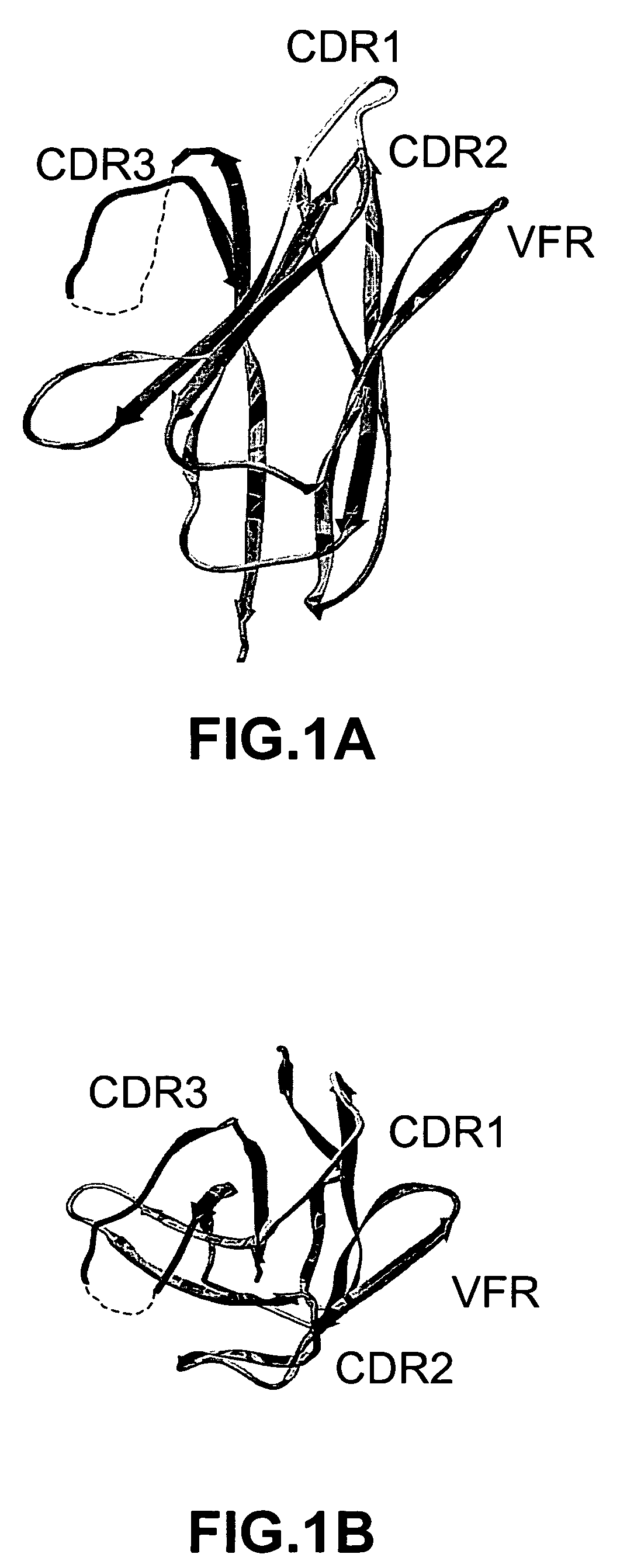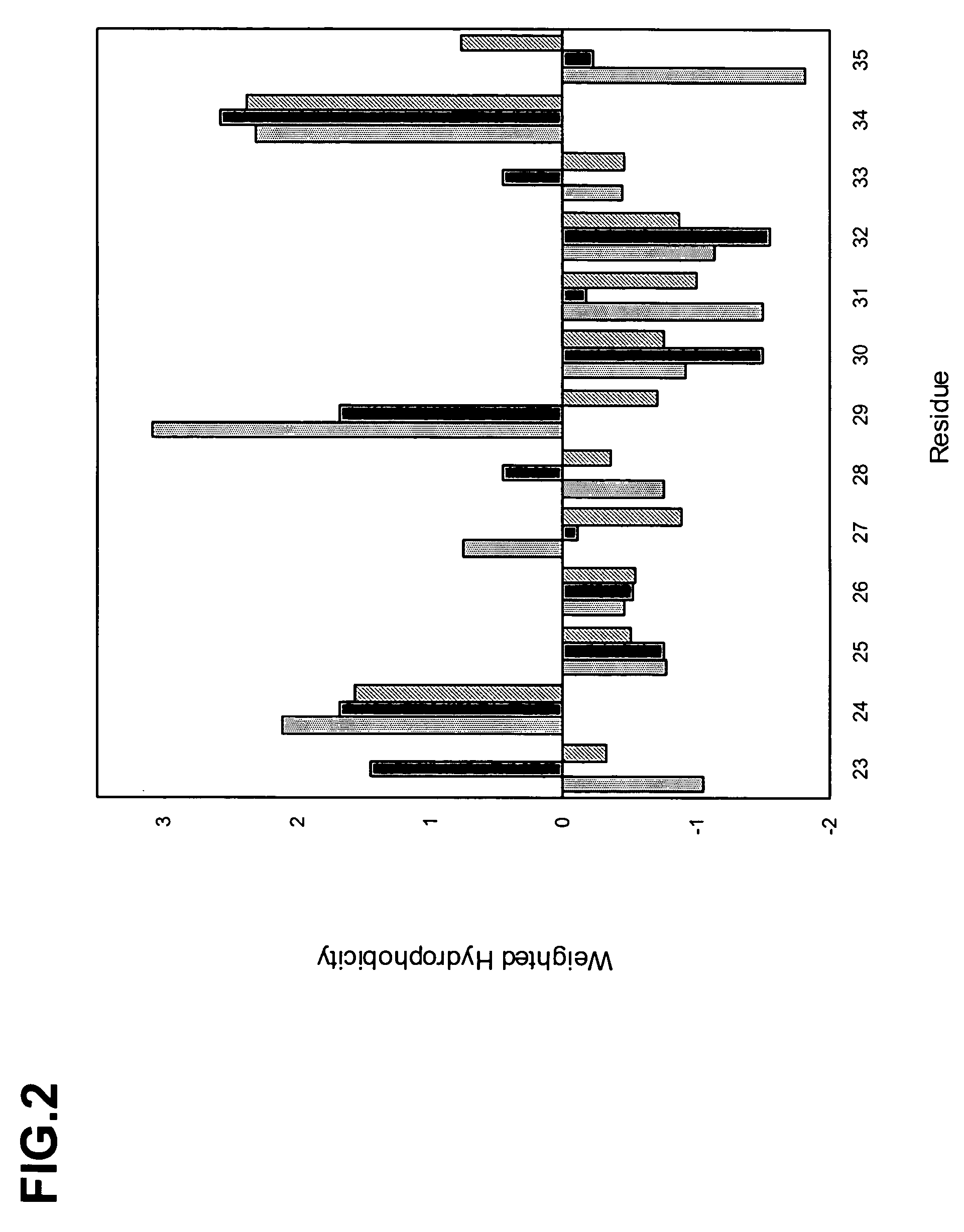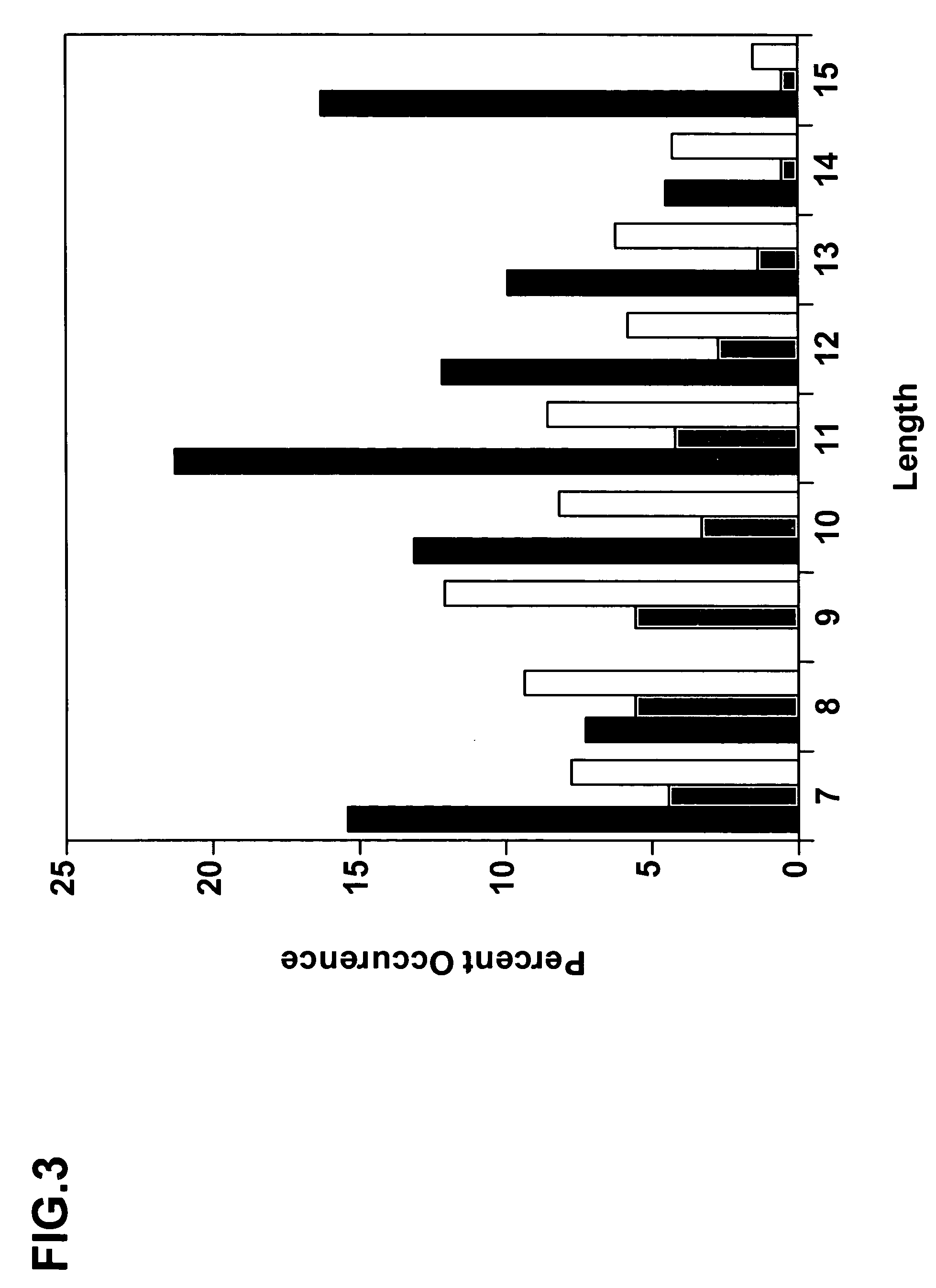Variable domain library and uses
a variable domain and library technology, applied in the field of antibodies or can solve the problems of inefficiency of production, reduced library size, and inability to provide diverse but structurally stable antibody variable domain libraries, and achieves the effects of high quality, easy adaptation to large-scale production, and efficient generation
- Summary
- Abstract
- Description
- Claims
- Application Information
AI Technical Summary
Benefits of technology
Problems solved by technology
Method used
Image
Examples
example 1
Generation of a Library of Variable Domains
[0286]We examined the three-dimensional structure of VHH-RIG, a heavy chain variable domain (Bond et al., 2003, J. Mol. Biol., 332:643-655), and delineated four loops defining a continuous stretch of sequence that presents a large contiguous surface for potential antigen binding (FIG. 1). The four loops correspond to amino acid positions in CDRH1, CDRH2, CDRH3, and FRH3. Framework residues 71-78 (FRH3) form a loop that is part of the framework region between CDRH2 and CDRH3. FRH3 is not considered a natural hypervariable loop, however, it is structurally positioned to make contacts with antigen (Franklin et al., 2004, Cancer Cell, in press) and affinity maturation studies have shown that mutations in FRH3 can modulate binding affinity (Carter et al., 1992, Proc. Natl. Acad. Sci. USA, 89:4285-4289; Baca et al., 1997, J. Biol. Chem., 272:10678-10684).
[0287]A database of VHH domain diversity was compiled to determine whether FRH3, similar to C...
example 2
Construction of Structural Database and Analysis of Amino Acid Distributions
[0293]We sequenced several hundred unique clones from each library following selection with protein A. The sequences were aligned, the occurrence of each amino acid type at each position was tabulated, the data were corrected for codon bias, and the distribution of the 20 natural amino acids at each position was calculated to produce the structure-based database of VHH domain diversity (Table 6) and FIG. 4.
Materials and Methods
[0294]DNA sequencing and analysis. Individual clones from each round of selection were grown overnight at 37° C., in a 96-well format, in 500 μl of 2YT broth supplemented with carbenicillin and M13-KO7 helper phage. Culture supernatants containing phage particles were used as templates for PCRs that amplified the DNA fragment encoding the VHH domain. The PCR primers were designed to add M13(−21) and M13R universal sequencing primers at either end of the amplified fragment, thus facilit...
example 3
Design of a Heavy Chain VEGF Antibody
[0320]The VHH-RIG scaffold is useful as a starting template in the design of a naïve antibody library. A library of VHH domains is generated using a RIG scaffold. VFR and one or more of CDRH1, CDRH2, and CDRH3 is randomized as described in Example 1. The resulting library is sorted against human VEGF. Clones are selected by in vitro panning for binding to VEGF using the method described in Example 1. After three rounds of sorting, the clones are sequenced and analyzed for bias for a particular amino acid at any position in the randomized loop(s) as described in Example 2. If the distribution analysis reveals a strong preference for cysteine at two positions that implies the formation of a disulfide constrained loop, a subsequent library is made where the identified cysteine residues are fixed and the amino acid sequence between the fixed cysteine residues is randomized as described above. Clones from the subsequent library are selected by panning...
PUM
| Property | Measurement | Unit |
|---|---|---|
| size | aaaaa | aaaaa |
| pH | aaaaa | aaaaa |
| acid | aaaaa | aaaaa |
Abstract
Description
Claims
Application Information
 Login to View More
Login to View More - R&D
- Intellectual Property
- Life Sciences
- Materials
- Tech Scout
- Unparalleled Data Quality
- Higher Quality Content
- 60% Fewer Hallucinations
Browse by: Latest US Patents, China's latest patents, Technical Efficacy Thesaurus, Application Domain, Technology Topic, Popular Technical Reports.
© 2025 PatSnap. All rights reserved.Legal|Privacy policy|Modern Slavery Act Transparency Statement|Sitemap|About US| Contact US: help@patsnap.com



